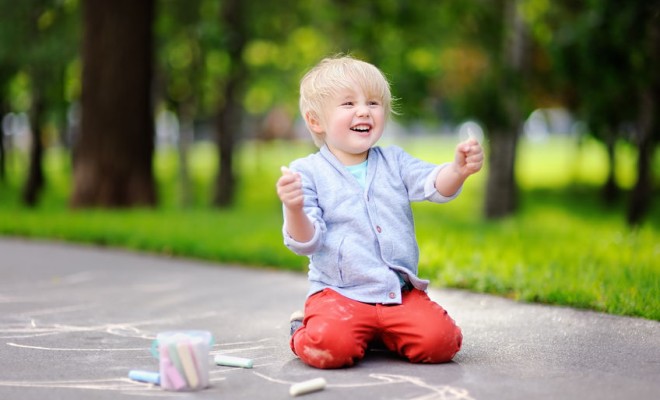
Childcare Activities
Alistair Bryce-Clegg’s 5 Ideas for Kid’s Outdoor Activities
Outdoor play not only promotes healthy physical development but is also beneficial to a child’s mental and emotion wellbeing. So when the sun shines, it’s important to have some outdoor activities lined up and ready to get young children moving around outside. Done right, kids outdoor activities provide a great opportunity for learning, as well as improving fitness and social skills. So we’ve teamed up with educational consultant Alistair Bryce-Clegg to bring you five of the best ideas from his book “50 Fantastic Ideas For Physical Activity Outdoors“.
Outdoor Toys for kids
1. Hungry Caterpillar Hopscotch
What you need
- Playground chalk
- Stone or counter
- Copy of The Very Hungry Caterpillar (optional)
What to do
- Using chalk draw the head and body of a caterpillar with the children.
- Make sure that the body of the caterpillar is very ‘wiggly’ and not just in a straight line!
- Number each of the circles that make the caterpillar’s body.
- Ask the children to throw their counter onto the caterpillar’s body and hop to where it lands.
Taking It Forward
Add a picture of the food that the caterpillar ate on each day to the circles and get the children to shout it out when they land on it. You could also make the caterpillar even longer for a bigger hopping challenge.
What’s in it for the children?
Hopping is good for the children’s balance and coordination as well as being a good form of exercise.
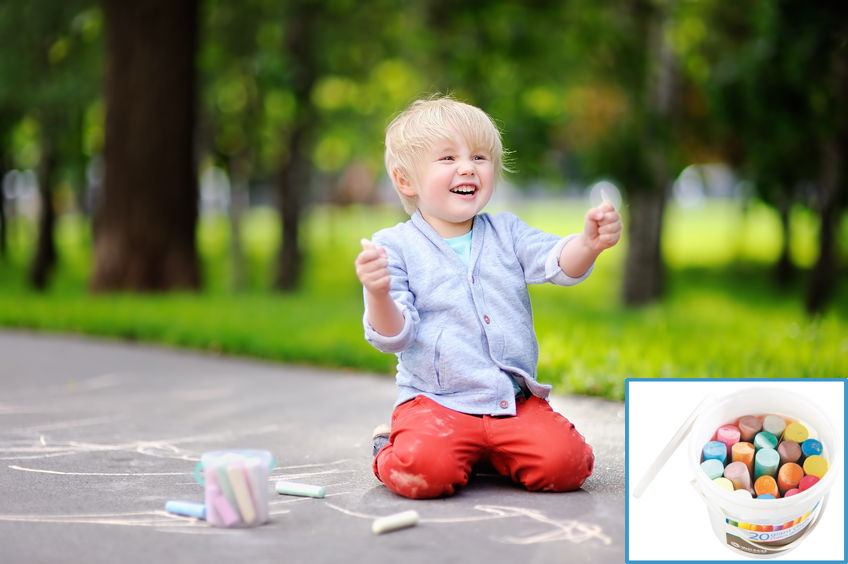
2. Digging For Treasure
What you need
What to do
- Bury your treasure in advance so that the children cannot see where you have put it.
- Give the children a spade to dig with and a bucket or container to collect their treasure in.
- Set the timer and let the children dig.
- The child who collects the most treasure in the time given is the winner.
- Let the children bury the treasure that they have found for the next group who comes along.
Taking It Forward
Add a challenge by burying the treasure deeper in the sand and/or by giving the children smaller utensils to dig with.
What’s in it for the children?
The physical motion of large scale digging helps the children to build strength in their upper body as well as supporting the development of their balance and hand/eye coordination.
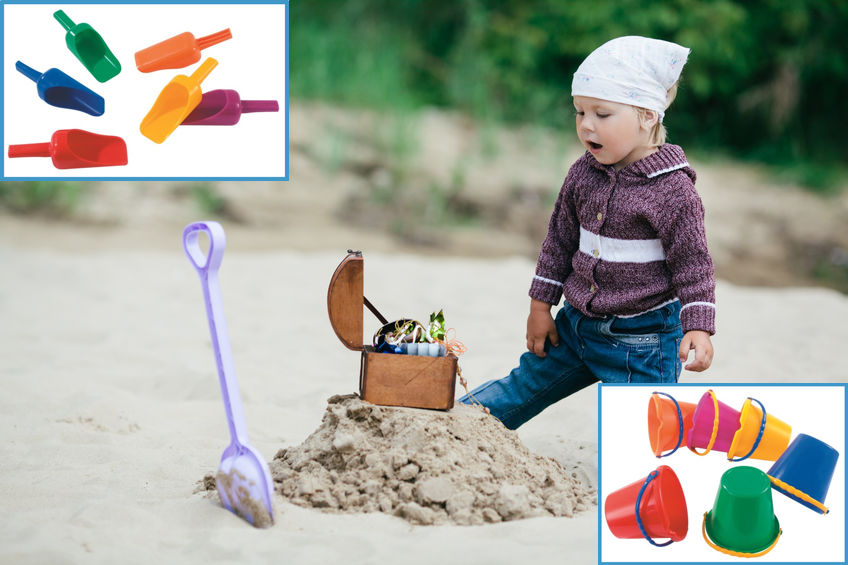
3. Hula Hoop Hoot
What you need
What to do
- Place a hula hoop over one child’s arm and then get all of the children to join hands to make a circle.
- The children have to move the hoop around the circle without letting go of each other’s hands.
Sign Up to Receive this 20-Part Activity Email Series
Taking It Forward
Add a challenge by having two hoops and send them around the circle in opposite directions.
What’s in it for the children?
This helps the children develop their balance and coordination as well as communication skills.
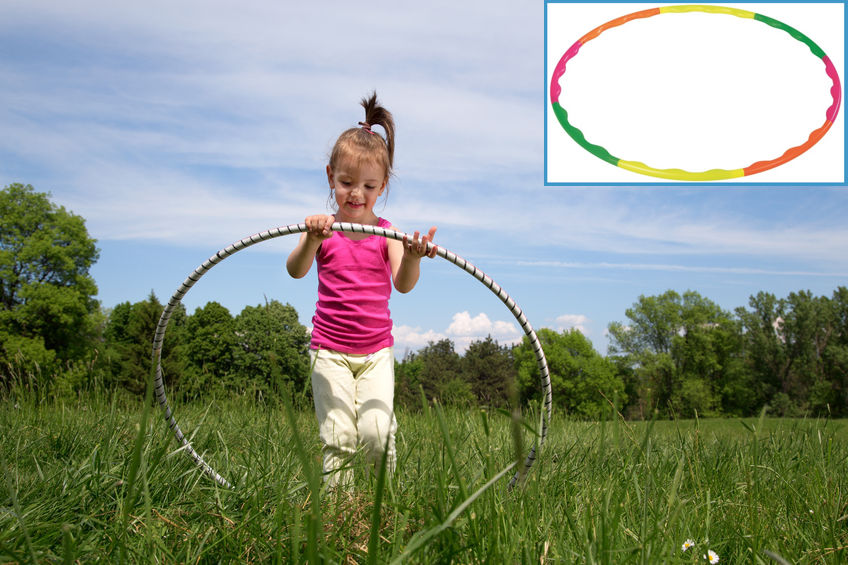
4. Capture The Flag
What you need
- 2 flags
- A hoop or skipping rope to make a jail
What to do
- Start by dividing the children into two teams.
- Assign team one to the front of your outdoor area and team two to the back area.
- The teams are given a limited time frame to hide their flag in their territory.
- Once the flag is hidden, teams call out that they are finished.
- They then must try and find the other team’s flag.
- If they get caught and tagged by an opponent on the opponent’s territory they go to jail. They can only be freed by a teammate who must grab them when their opponent isn’t looking.
- The first team to capture the flag or all of their opponents wins.
Taking It Forward
Use white, customisable flags and allow the children to decorate them beforehand. Add a challenge by increasing the number of flags that the children have to hide and retrieve.
What’s in it for the children?
This is a great activity to get children moving around quickly to develop their fitness as well as their coordination and communication skills.
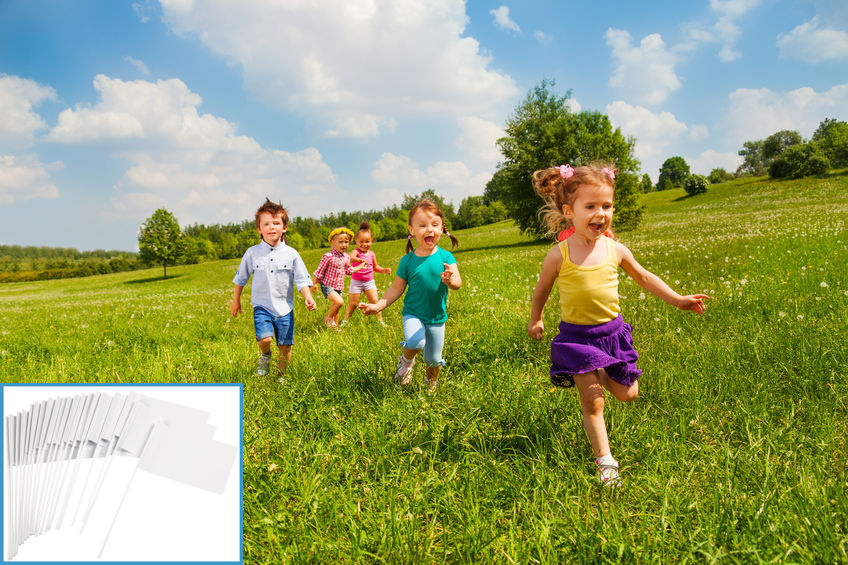
5. Big Ball Relay
What you need
- A large ball (such as a sponge ball or a beach ball)
What to do
- Line two teams up with the captain of each team standing about a metre away from the first person in their team.
- To start the game, the captain throws the ball to the first player in the line, who then throws the ball back and sits down.
- The captain throws the ball to the next player, who throws the ball back and sits down behind the first person.
- The captain continues in this way until all the players have had a turn.
- When the last player catches the ball they then run to the captain to replace him, while the previous captain takes the position of the first person in the line.
- The new captain now repeats the throwing of the ball to each player.
- The first team to have every player as the captain wins the game.
Taking It Forward
Add a challenge by replacing the ball with a different shaped ball or a balloon.
What’s in it for the children?
This activity is great for teamwork as well as developing throwing and catching skills.
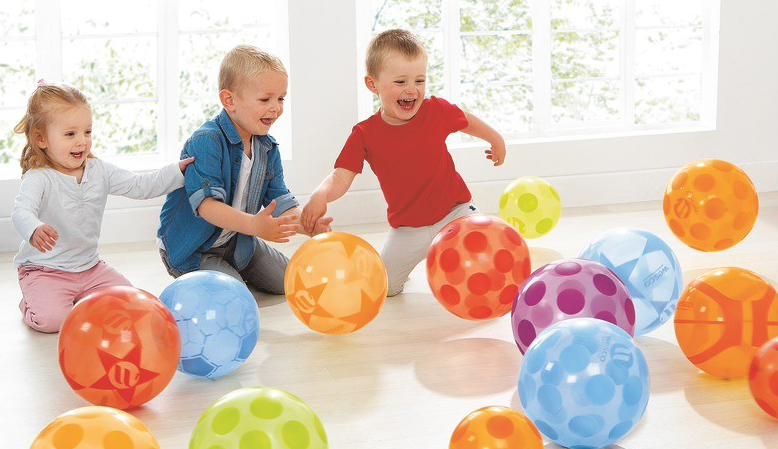
Alistair enjoyed a successful 10 year career as the Head teacher of three-form entry Infant school and Early Years Unit in Cheshire. Alongside his headship he established a consultancy career specialising in the education of children in the Early Years.
Demand for his consultancy became so great that Alistair left headship and established ABC Does… (abcdoes.com).
Most of his time is spent supporting practitioners in their settings or delivering key notes and training, specialising all aspects of Early Years practice and management for both the maintained and non-maintained sectors nationally and internationally.
Alistair is also an award-winning author and product designer, whose work has been published in a number of books and magazines. Alongside support and training for a range of settings and schools, he also works Internationally and with Local Authorities across the UK.
Alongside achieving an MA in Education, Alistair is currently studying for his Doctorate in Early Years.



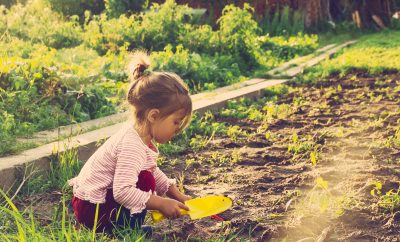


You must be logged in to post a comment Login